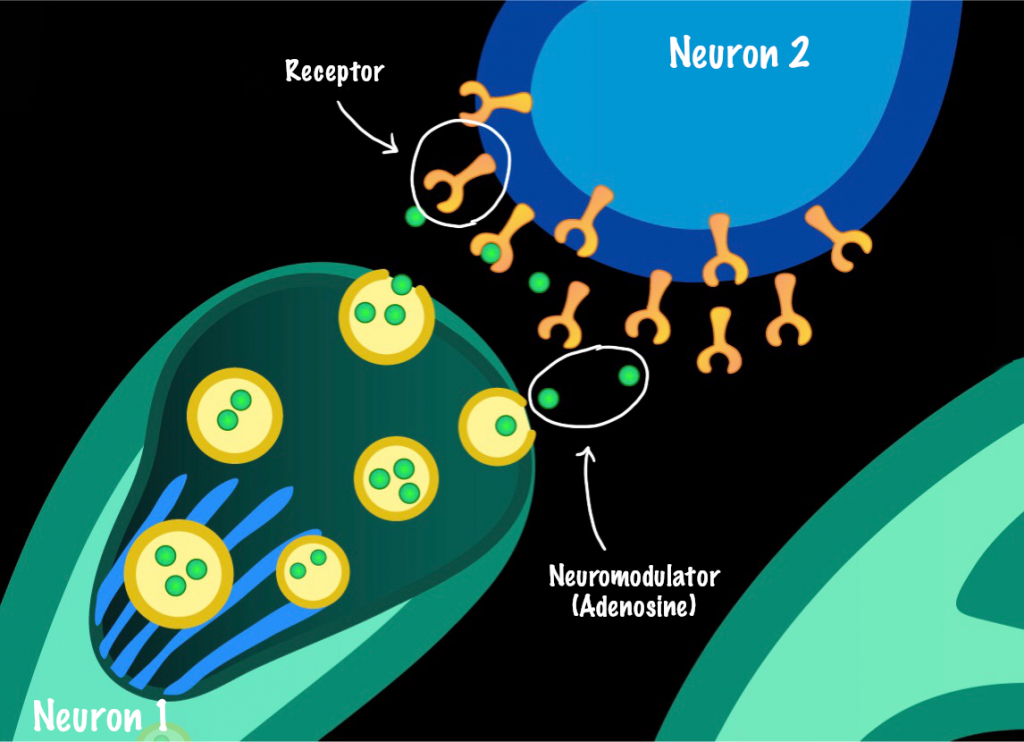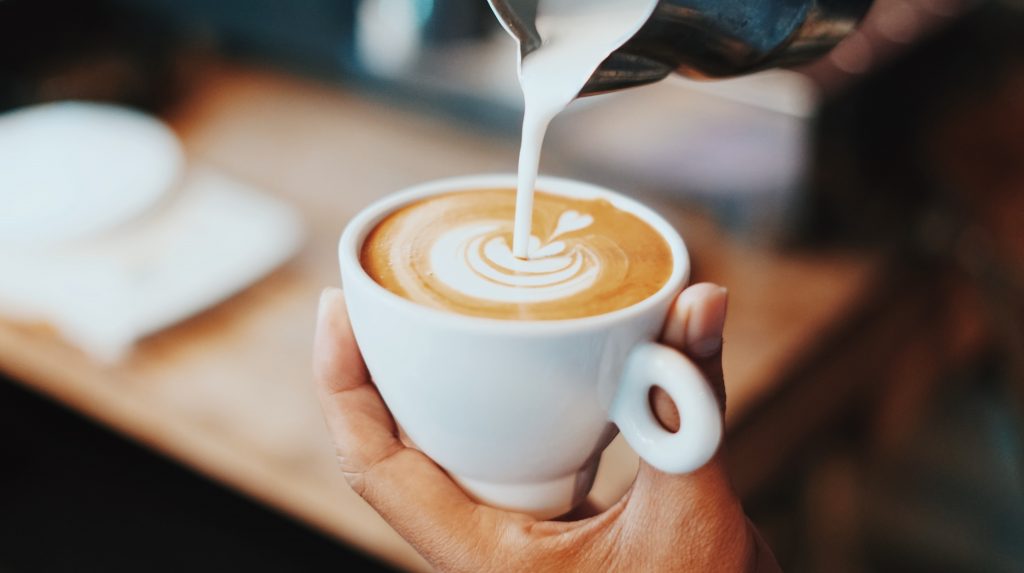This post is also available in Dutch.
First, we need to know how we get tired in the first place
To understand how caffeine works, we first need to know how we get tired. In the brain, we have cells called neurons. Neurons communicate with each other by sending chemicals from one to another. Neurons receive chemicals via small channels called receptors. There are also other chemicals around these neurons called neuromodulators which can influence how neurons communicate. Throughout the day, a neuromodulator called adenosine builds up in the brain and binds to some of these receptors. This accumulation of adenosine leads to tiredness throughout the day. But when you sleep, the brain clears out this adenosine and you wake up feeling fresh.

Caffeine stops you from getting more tired
Caffeine looks a lot like the adenosine molecule. When you drink coffee or consume caffeine in any other form, caffeine enters your brain and binds to the adenosine receptors. This blocks adenosine from binding to those receptors, preventing you from feeling more tired. Caffeine doesn’t bind to every single receptor, though; it still competes with the natural adenosine in your brain for receptors. And this is where the nap comes in handy.

Here is how the coffee nap make things even better
While you are sleeping, the amount of adenosine in your brain decreases. Also, caffeine takes about 20 minutes to reach your brain. So at the end of that nap, the caffeine enters the brain and has a lot less adenosine to compete with for binding to those receptors. This is what makes you feel much more awake and alert when you wake up from the coffee nap.
There is evidence that coffee naps are more efficient than regular naps or coffee alone. Several studies have found that people who took coffee naps made fewer mistakes in a driving test compared to those who had only coffee or just a nap. Another study found that people who took a coffee nap performed better on a memory task. Speaking from my own experience, coffee naps can be an incredible way to regain energy and focus in the afternoon.
The best way to take a coffee nap
The best way to have a coffee nap is to first drink a cup of coffee quickly, not taking more than around five minutes so that half of your coffee hasn’t kicked in too early. Then, directly afterwards, take a 20-25 minute nap. This works even if you don’t end up actually falling asleep; just laying down and resting in that almost-asleep state helps clear out adenosine. Importantly, don’t nap longer than that because you might then enter deeper stages of sleep. If that happens, you might have what is called ‘sleep inertia’, which is when you wake up and feel even more tired and drowsy than before the nap. Enjoy the freshly energized afternoon feeling that coffee naps can bring!
Author: Viola Hollestein
Buddy: Floortje Bouwkamp
Editor: Christienne Damatac
Translation: Felix Klaassen
Editor translation: Brittany van Beek
Image by Fahmi Fakhrudin via Unsplash
